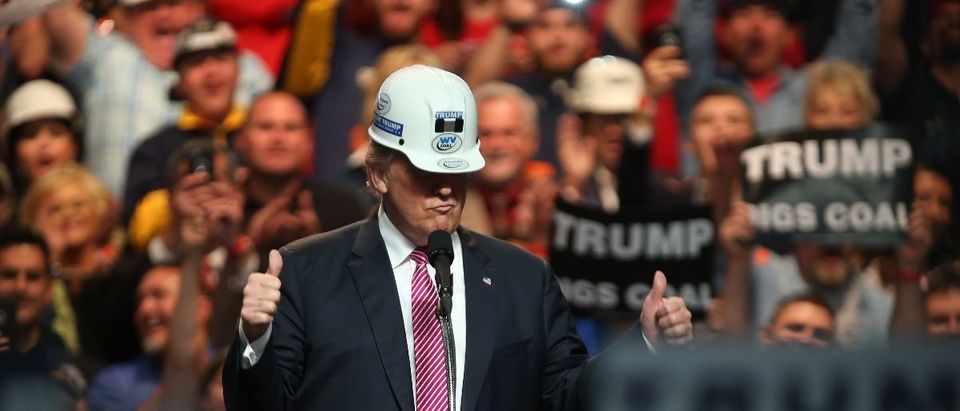On January 11, United Technologies Corporation (UTC) began laying off another 215 workers at its Carrier plant in Indianapolis. The job losses are the last phase in the program of layoffs UTC announced in February 2016 as it shifted production of air conditioners to Monterrey, Mexico.
The Carrier layoffs became a political issue when Donald Trump singled them out for attack during his election campaign, promising that under his presidency: “These companies aren’t going to be leaving anymore. They’re not going to be taking people’s hearts out.”
Soon after his election, President Trump seemed to begin putting his words into action, announcing a deal with UTC that promised to keep many of the Carrier jobs in Indianapolis. Although it turned out that 700 positions at the plant were still to be eliminated, the cuts were less severe than those originally planned.
A key factor motivating UTC to make the president-elect happy by backpedaling on its plans for job cuts was the billions of dollars in aerospace contracts the company receives each year from the U.S. government. In an interview with Jim Cramer, UTC CEO Greg Hayes admitted: “I was born at night, but it wasn’t last night…I also know that about 10 percent of our revenue comes from the U.S. government.”
But UTC is not the only major federal contractor that sends American jobs abroad. In April 2017, Good Jobs Nation partnered with Public Citizen’s Global Trade Watch to examine the extent of job offshoring by federal contractors. Using data from the Department of Labor’s Trade Adjustment Assistance Program we found that 56 of the top-100 federal contractors engage in outsourcing. By the end of 2015 these corporations had shifted a total of almost 60,000 American jobs abroad.
Good Jobs Nation recently updated this study to see what, if anything had changed since Trump’s election to the presidency. We found that the Department of Labor had certified 10,269 jobs as lost to outsourcing by top-100 federal contractors in the year since the election — the highest total on record, and up 200 percent on the previous year. General Motors, Boeing and UTC accounted for over half the total losses. We also found that offshoring contractors had been awarded at least $20.8 billion in additional federal contracts since Trump took office.
In short, federal contractors are, if anything, more likely to offshore under President Trump than they were before, and have faced no negative consequence for doing so. Greg Hayes’ fears may have been premature.
These findings present President Trump with both a challenge and an opportunity.
They challenge him to show that his intervention in the Carrier case was more than a flash in the pan, and that as president he remains serious about his promise to stop offshoring by major American corporations.
They are an opportunity because, as de facto CEO of the United States government, which purchases $470 billion each year in goods and services from the private sector, he already has the power to take immediate and significant action against offshoring, without waiting on congressional approval or the outcome of international trade negotiations.
Under the Procurement Act of 1949 the U.S. president is authorized to enact “policies and directives” for federal contracting. Presidents of both parties have used this power to issue executive orders that advanced their major policy priorities.
For instance Lyndon Johnson issued Executive Order 11246 imposing anti-discrimination and affirmative action requirements on federal contractors, and George W. Bush used the same power to require contractors to use E-Verify to vet their employees’ work authorization.
Similarly, President Trump could deter offshoring by major corporations by issuing an executive order requiring the federal bureaucracy to give preference in contract award decisions to companies that refrain from shifting production abroad.
Doing so would not end offshoring overnight but it would send a powerful message to the boardrooms of corporate America that President Trump is on the side of the workers whose votes helped put him in the White House.
George Faraday is Legal and Policy Director for Good Jobs Nation, an organization that advocates for low-wage federal contract workers.
The views and opinions expressed in this commentary are those of the author and do not reflect the official position of The Daily Caller.


